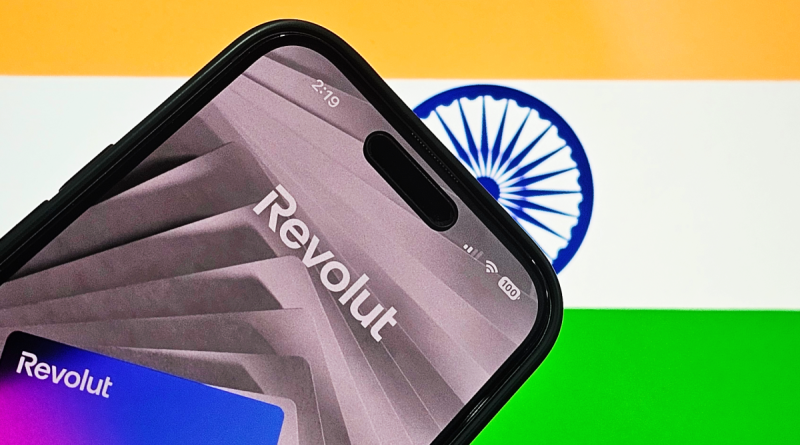Revolut Aims to Compete with Indian Banks Over Their High Forex Fees
British fintech Revolut is officially entering the Indian market, stating that cross-border payments are among the most underserved financial services in the region. The company estimates that around $30 billion is spent by Indians abroad each year, resulting in approximately $600 million in bank fees, which the head of Revolut India describes as “criminal.”
“This has largely been the realm of banks,” said Paroma Chatterjee, CEO of Revolut India, in an interview with TechCrunch. “Typically, you go to your bank for currency exchange or get a travel card from them for your overseas trips… the fees have been substantial.”
Since 2021, Revolut has been gearing up for its launch in India, aiming to fill voids in the foreign exchange and conventional payment arenas. The London-based fintech acquired Arvog Forex in 2022 to secure a necessary license, which enables it to provide remittance and multi-currency account services in India. Additionally, in April of this year, it obtained a prepaid payment instrument (PPI) license from the Reserve Bank of India, allowing it to issue prepaid cards, support digital wallets, and integrate with the government-funded Unified Payments Interface (UPI).
With these regulatory approvals in hand, Revolut plans to rival traditional banks and compete with existing fintech companies in India. The British startup aims to reach over 150 million digitally savvy, globally minded Indians aged between 25 and 45, with a target of onboarding approximately 20 million users by 2030 and facilitating at least $7 billion in transactions.
Chatterjee stated that these regulatory approvals, especially the PPI license, allow the fintech to deliver a more distinct customer experience compared to those depending on bank partnerships. “We can offer the kind of customer experience we aspire to provide,” she explained.
Revolut plans to launch a prepaid wallet for Indian consumers with UPI support and branded UPI handles, along with a domestic Visa card and an international multi-currency Visa card. Furthermore, it will provide dedicated accounts for children and teens linked to their parents’ profiles, introduce a subscription model, and offer budgeting and analytics tools that give insights into spending behaviors.
The startup has also received regulatory approval for both domestic and international payments and transfers on its platform. Additionally, it is authorized to facilitate same-day remittances from India through a local banking partner.
Techcrunch event
San Francisco
|
October 27-29, 2025
Unlike many Indian fintech firms that use minimal know-your-customer (KYC) checks to quickly onboard users for limited, low-value transactions, Revolut will exclusively offer fully-KYC wallets. The fintech will also screen new users against global sanctions lists, including those maintained by the Office of Foreign Assets Control and the United Nations. Chatterjee remarked that this approach aims to attract “high-intent customers” ready to complete a more thorough onboarding process, including Aadhaar and video verification.
“Only individuals truly interested in utilizing the product will go through this process. Therefore, this fully KYC onboarded customer will be my metric for success,” she emphasized.
“In a country like India, merely appearing on App Store leads to downloads out of curiosity,” she noted. “That’s not how we define success.”
The fintech seeks to assess its success in India based not on user growth metrics but rather on user engagement and profitability.
“Some companies boast about having 300–400 million customers,” Chatterjee told TechCrunch. “Revolut globally has 65 million customers across 39 nations, valued at $75 billion. This achievement comes from processing over $4 billion in transactions and generating over a billion dollars in profit from these users. More than 25 million of them are active each month.”
She also mentioned a newly announced valuation for Revolut, which rose from $45 billion last summer following a secondary share sale.
Revolut has already amassed a waitlist of over 350,000 individuals in India, intending to onboard them later this year before opening the app to new users. However, the exact timeline for the launch will depend on how quickly the company can manage the waitlist and ensure customers complete their KYC and anti-money laundering (AML) checks.
The startup is also considering partnerships beyond Visa, including India’s government-backed RuPay, to enhance its offerings and provide users with diverse network options.
Revolut has initially committed $45 million to establish its operations in India and adapt its entire tech infrastructure in compliance with the nation’s data sovereignty regulations. Chatterjee indicated that further investments are planned as services are rolled out.
Among Revolut’s 10,000 global employees, approximately 3,500 are already based in India—its largest workforce anywhere, even exceeding that of its home market in the U.K. Some of these team members are also tasked with developing products and features for markets beyond India.
Despite Revolut’s ambitious aspirations, it will inevitably encounter intense competition as it enters the market. While banks primarily dominate foreign exchange services in India, fintech players like Niyo, Scapia, Fi, and BookMyForex are already established in the cross-border and remittance sectors.



